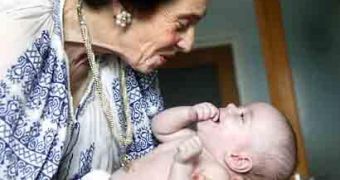The common concept on female fertility states that at birth females have all their eggs inside their undeveloped (yet) ovaries and these eggs are released one by one (sometimes more than one) at each ovulation. At menopause, the ovaries are deserted by any egg.
But in 2004 a Harvard team led by reproductive endocrinologist Dr. Jonathan Tilly started a vivid debate by challenging this concept.
Their research, published in 2004 in Nature with a follow-up 2005 study in Cell, contradicted the biological dogma that female mammals, including women, have their number of eggs limited from birth.
The researchers signalled they had found stem cells able to move from bone marrow to mouse ovaries and form new eggs there. This finding gave hopes for future new treatment, like bone marrow transplantation, that could enable older women regain their fertility. But subsequent researches did not confirm Tilly's surprising finding.
A new complex research representing a collaboration between the University of South Florida and Sun Yat-Sen University in Guangzhou, China, ranked as highly unlikely that older women could form new eggs. The researchers have found no evidence to confirm Tilly's hypothesis.
The team looked for markers of stem cells or of meiotic cell division in ovarian cells taken from 12 women, aged 28 to 53.
"Despite using the most sensitive methods available, we found no evidence of any egg stem cells in human ovaries, demonstrating that Dr. Tilly's findings in mice do not apply to women," said Dr. David Keefe, professor and chair of Obstetrics and Gynecology at USF.
"Dr. Tilly likely was seeing non-egg cells which resemble eggs. Another reason his findings do not apply to women could be because mice eggs are more resilient than women's eggs. The bottom line is that women should not expect stem cell therapy to treat egg infertility or menopause in the foreseeable future."
"This is a very important finding by a distinguished group of researchers and clinician-scientists at USF Health which affirms the traditional dogma of a finite period of fertility in women," said Dr. Abdul S. Rao, senior associate vice president for USF Health and vice dean for research and graduate affairs at the College of Medicine.

 14 DAY TRIAL //
14 DAY TRIAL //